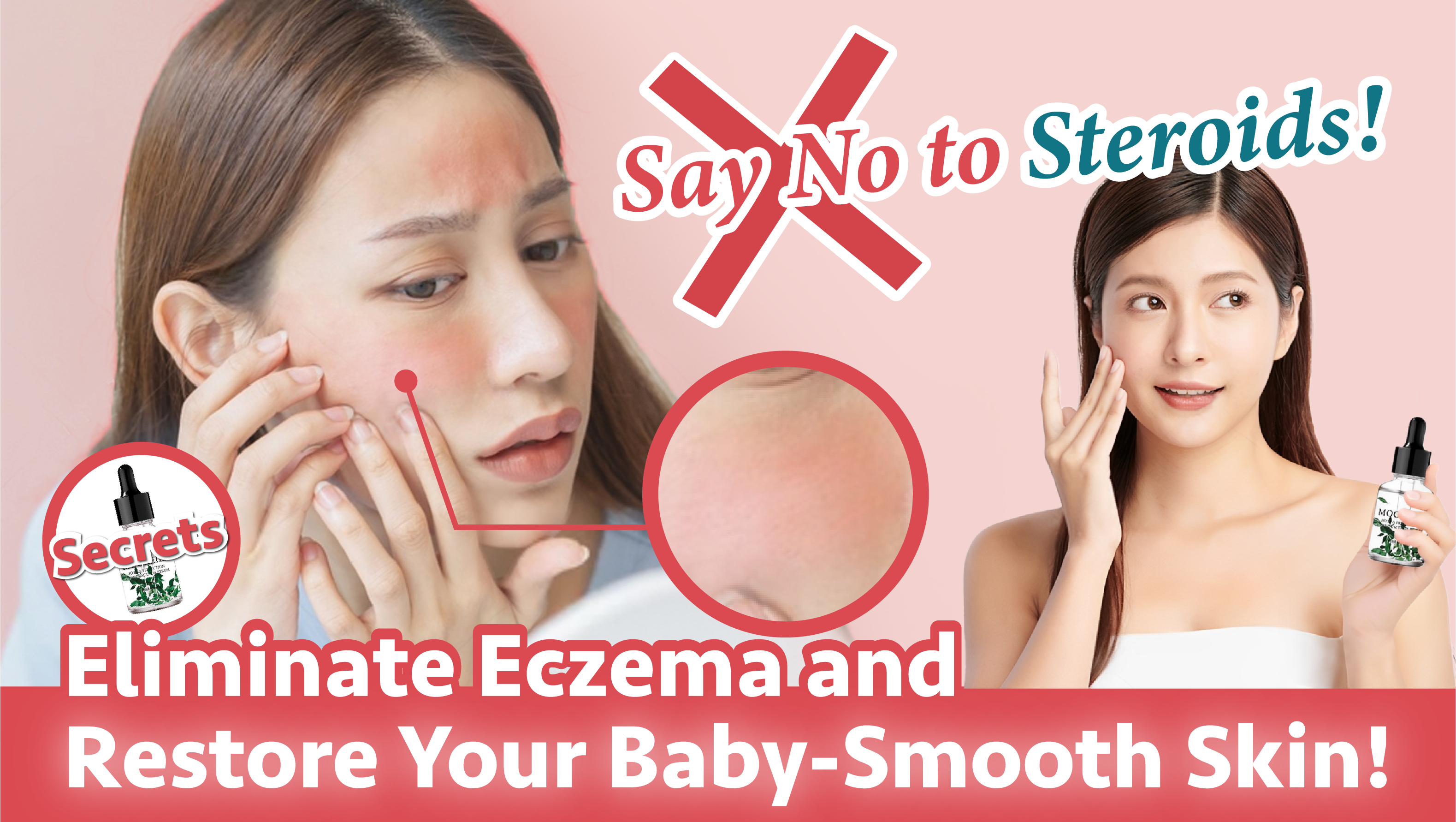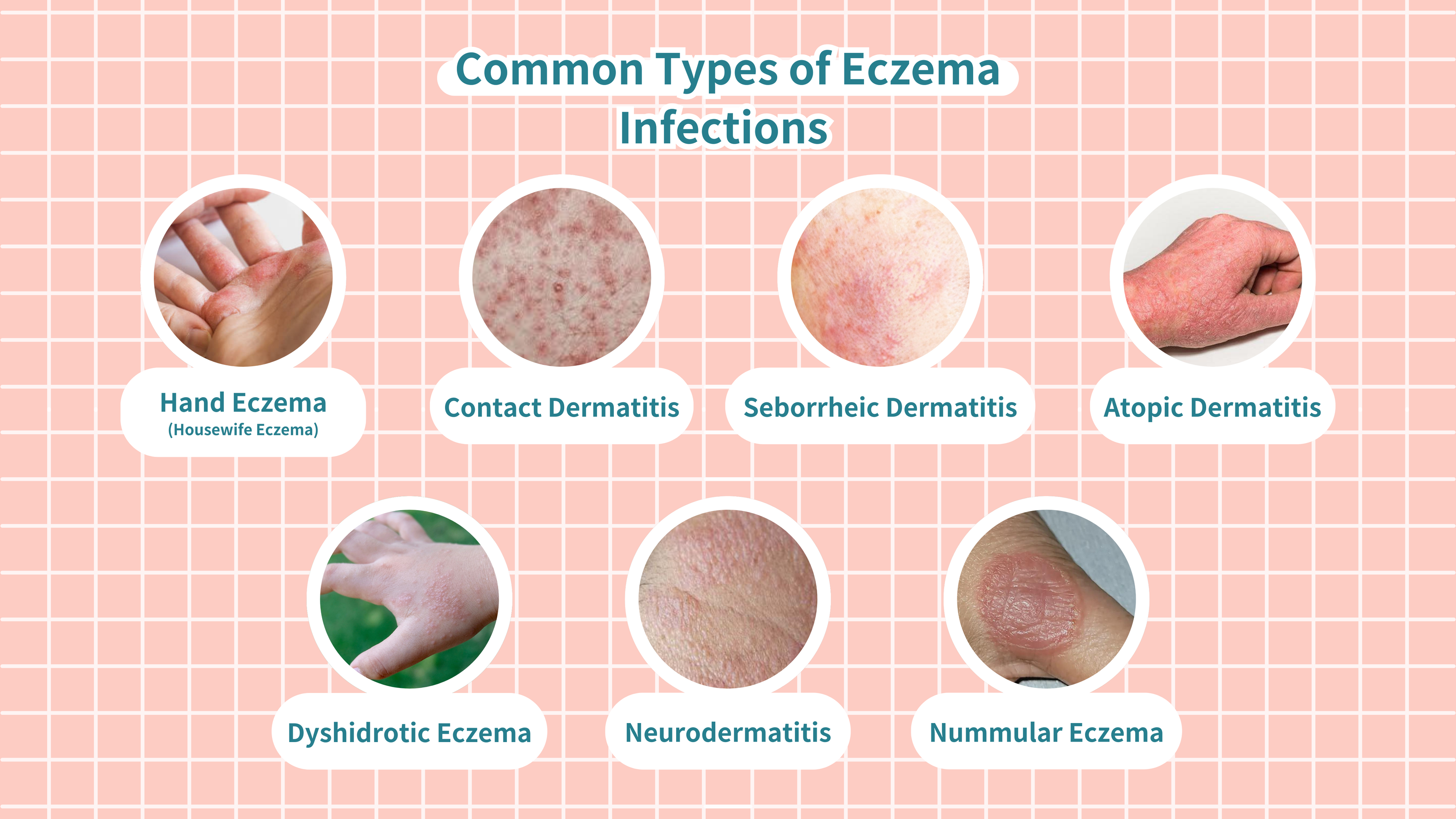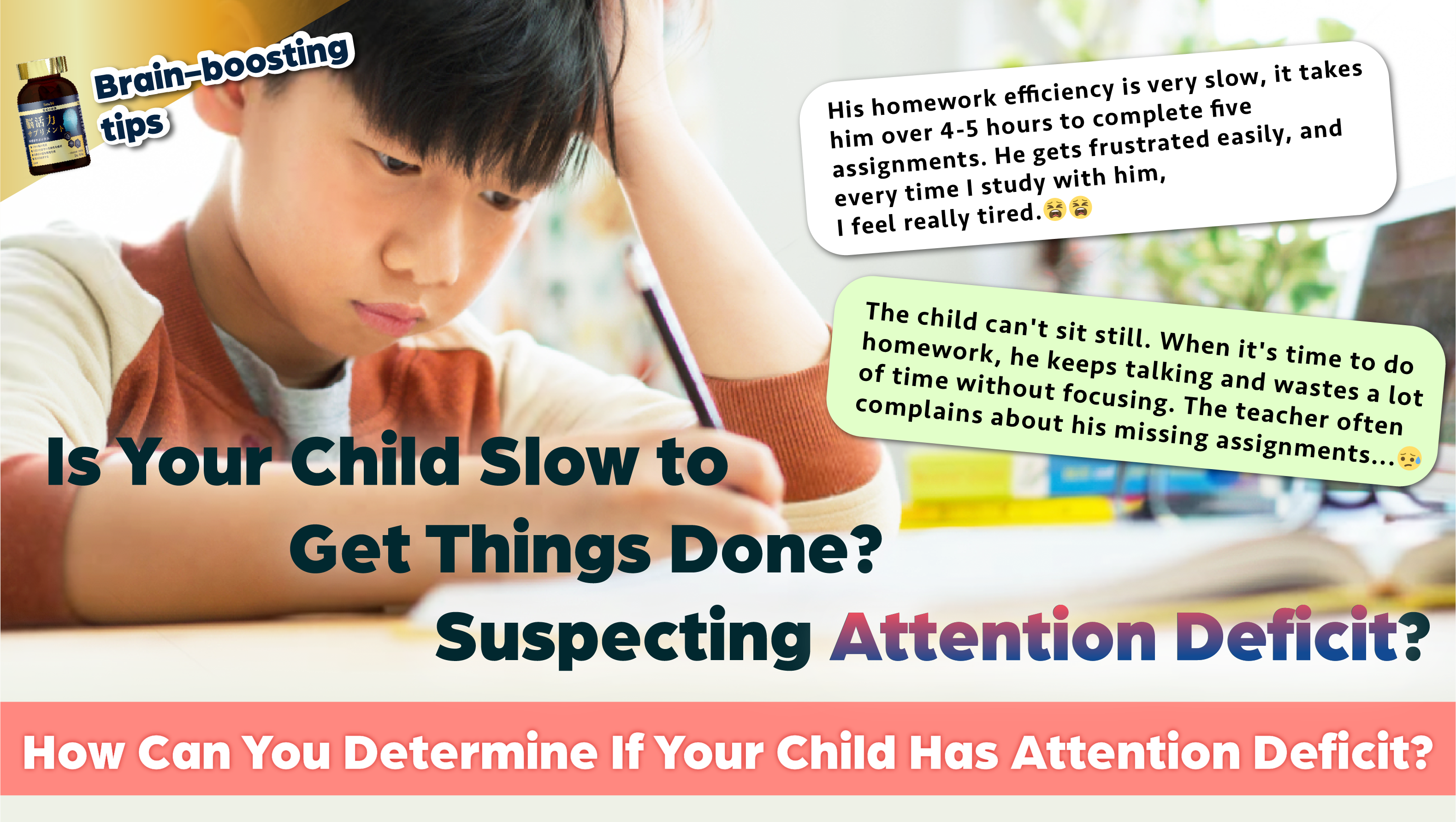Health Tips
Say No to Steroids! Eliminate Eczema and Restore Your Baby-Smooth Skin!
14 March 2024

People with eczema often need to use topical steroids to control their condition. However, even with prolonged itching, it's important not to overuse these medications. Scratching the affected areas can lead to skin damage and expand the eczema's reach. Fortunately, many skincare brands are dedicated to researching solutions for the itching associated with eczema. A patented ingredient developed in collaboration with Kyoto University and Osaka University in Japan can quickly relieve eczema symptoms, alleviate itching, and help restore the skin barrier to address the problem at its source.
What Are the Symptoms of Eczema?
Eczema is a general term for dermatitis and encompasses eight different types. Symptoms can include itching, redness, and flaking skin. The exact causes of eczema are not clearly defined, but it is believed to be linked to allergens in the environment, such as pollen, as well as genetic factors and food allergens like eggs and milk. Currently, there is no complete cure for eczema; however, there are various ways to alleviate symptoms and avoid triggers that may provoke inflammation.
Common Types of Eczema Infections

- Nummular Eczema: Nummular eczema is named for its characteristic round, coin-shaped lesions that appear on the skin. Patients typically develop circular or red patches, commonly found on the arms, forearms, and lower legs. The condition may be triggered by metal or specific bacterial allergies, and even insect bites can provoke the symptoms.
- Neurodermatitis: Neurodermatitis is a type of eczema associated with psychological and emotional states. It often flares up during periods of stress, leading to thickened skin and scaly patches, accompanied by intense itching. Common locations include the hands, feet, and neck.
- Dyshidrotic Eczema: This type frequently occurs in areas with a high density of sweat glands, such as the palms and soles of the feet. Affected areas may develop numerous small blisters, sometimes reaching into the dozens. Patients may experience itching, but some might not feel any discomfort at all. Dyshidrotic eczema can be triggered by exposure to chemical cleaners, physical and emotional stress, and changes in environmental humidity.
- Hand Eczema (Housewife Eczema): Housewife eczema arises from frequent contact with irritating substances or allergens, primarily affecting individuals like homemakers, hairstylists, and healthcare workers. These individuals often encounter harsh chemicals, leading to dry, cracked skin on the hands, which can become severe enough to bleed.
- Contact Dermatitis: Contact dermatitis is closely related to various allergens and irritating substances. Whether caused by contact with an allergen leading to allergic dermatitis or prolonged exposure to irritants resulting in irritant dermatitis, the primary symptoms include red, swollen, itchy skin, and may also involve red bumps, peeling, and blistering.
- Seborrheic Dermatitis: Seborrheic dermatitis occurs in areas with high oil production, such as the face, chest, and scalp. It is caused by excessive sebum secretion combined with the blockage of hair follicles by Malassezia yeast, which can trigger an abnormal immune response. Over-cleansing the skin and environmental changes can also provoke flare-ups, leading to redness and flaking.
- Atopic Dermatitis: Atopic dermatitis is a chronic inflammatory skin condition that can recur intermittently. While it is commonly seen in children, adults can also be affected. It is believed to have a genetic component and usually appears in the flexural areas of the limbs. The affected areas may vary by age; for example, infants may develop it on the head, while children may see it spread to the arms and neck. This condition causes dry, red, itchy skin, and scratching can lead to breaks in the skin, oozing, crusting, and ultimately a vicious cycle that exacerbates the eczema.
Mooneila Ultimate Hydrating Serum – The Savior for Dull, Eczema-Prone, and Sensitive Skin!
Introduction
- Suizenji Nori: A rare blue-green algae native to Fukuoka, Japan, with moisturizing capabilities five times stronger than hyaluronic acid. It also offers potent calming and anti-inflammatory effects, making it highly effective for improving sensitive and eczema-prone skin.
- Super Amino Acid Derivative: NAHLSGEN, a patented Japanese ingredient co-developed by the Institute for Chemical Research at Kyoto University and Osaka University. It strengthens the skin barrier, effectively treats eczema, promotes collagen production, improves skin elasticity, enhances radiance, reduces fine lines, protects against blue light, and prevents skin aging.
- Bifidobacterium: A probiotic naturally found on human skin with multiple benefits, including anti-inflammatory and moisturizing properties, as well as the ability to inhibit harmful bacteria growth. It helps reduce skin sensitivity, redness, and infection.
- Platinum: Soothes the skin, whitens, delivers antioxidant protection, boosts elasticity, and stimulates cell regeneration.
Japanese Clinical Trial
50 women applied the product to one half of their face for two consecutive weeks:
- Skin moisture increased by 43.5%, significantly improving hydration.
- Redness and dark spots decreased by 24.5%, helping to alleviate sensitive skin issues.
- Skin elasticity increased by 26.1%, effectively combating signs of aging and restoring firmness.
Directions
After cleansing in the morning and evening, apply 4-6 drops of serum to the entire face, including the eye area. Follow with a moisturizer. In the morning, you can skip the moisturizer and apply makeup directly, as its lightweight texture helps makeup adhere better and last longer.
Example product title
-

Is Your Child Slow to Get Things Done? Suspecting Attention Deficit?
Learn MoreDoes your child often seem restless, unable to sit still, or take a long time to finish tasks? Many parents run out of patience when helping their children study or complete homework, sometimes mistaking this behavior for mischief and scolding them. However, it may actually be a result of Attention Deficit (AD). What are the symptoms of attention deficit, and how can this issue be addressed? Let us explain!
-

Parents, Take Note! 3 Major Factors Affecting Height Development!
Learn MoreMany people believe that height is closely linked to genetics. In fact, besides genetics, external factors play an even more significant role! As parents, how can you tell if your child's height is up to standard? Before the "golden growth period" ends, what methods can help your child grow taller? Let's discuss the three most important factors influencing height and teach you how to make the most of the "golden growth period" to easily surpass genetic height limits!
-

Learn This Trick! Easily Adjust Your Body to Become Slimmer!
Learn More"Losing weight is so hard." This is a sentiment many people share. For some, it even becomes a lifelong mission! Many resort to extreme methods like dieting in an attempt to shed pounds. At first, it may seem effective—people can lose 2 to 3 kilograms, or even more, in a short time. However, after some time, they hit a plateau. Once they resume regular eating, their weight rebounds, sometimes with serious health consequences.
-

Poor Memory in the Elderly ≠ Dementia: A Simple Action to Delay Brain Aging!
Learn MoreAs we age, it’s common for memory to decline—forgetting names or where things are placed can cause concern about early signs of dementia. However, according to Japanese dementia specialist Dr. Yukimichi Imai, age-related memory loss and dementia are not the same, and there's no need to worry excessively about occasional forgetfulness. So, how can you differentiate between normal memory loss and dementia, and what can you do to prevent it? Let's explore!
























